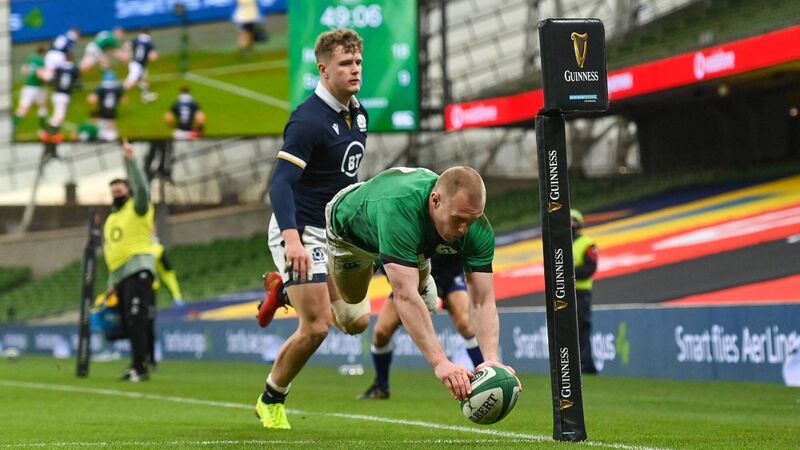Donal Lenihan: A welcome end to a forgettable year for Ireland on all fronts

Try from €1.50 / week
SUBSCRIBE
Keith Earls touches down for Ireland’s third try against Scotland in their Autumn Nations Cup clash at the Aviva on Saturday. Picture: Ramsey Cardy/Sportsfile
After a challenging start, the Autumn Nations Cup has come and gone. Having witnessed, in the flesh, the flair and excitement Japan brought to the table at the last World Cup, I was really looking forward to seeing them in action once again.
It proved an early blow to this fledgling tournament that they never even made it to the starting line. With due respect to Georgia, they were never going to make up for the loss of the all-action style favoured by the Japanese. Given how dull some of the fare has been over the last few weeks, the Cherry Blossoms were badly missed.
Already a subscriber? Sign in
You have reached your article limit.
Annual €130 €80
Best value
Monthly €12€6 / month
Introductory offers for new customers. Annual billed once for first year. Renews at €130. Monthly initial discount (first 3 months) billed monthly, then €12 a month. Ts&Cs apply.
Newsletter
Latest news from the world of sport, along with the best in opinion from our outstanding team of sports writers. and reporters
Friday, February 13, 2026 - 11:00 AM
Friday, February 13, 2026 - 3:00 PM
Friday, February 13, 2026 - 11:00 AM

Select your favourite newsletters and get the best of Irish Examiner delivered to your inbox
© Examiner Echo Group Limited